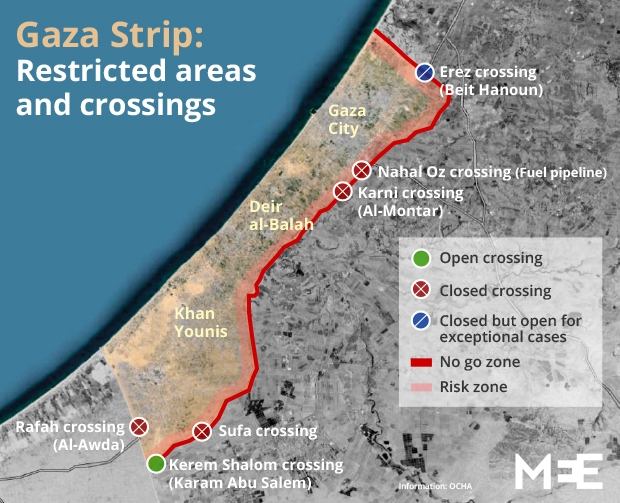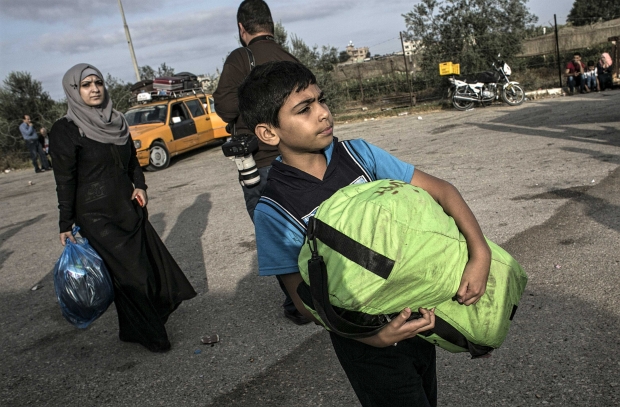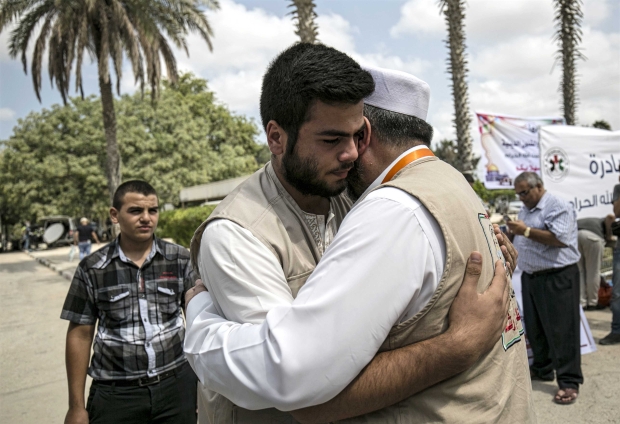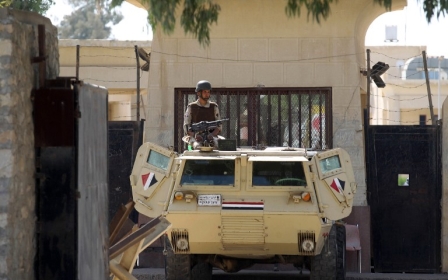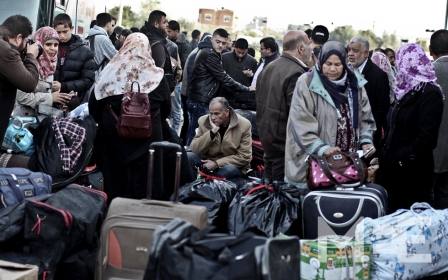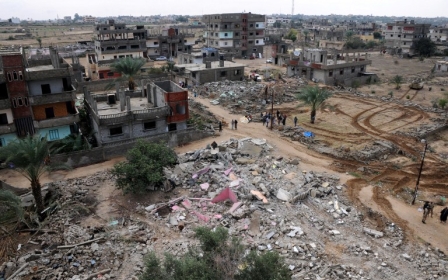Egypt opens Rafah border crossing for five days
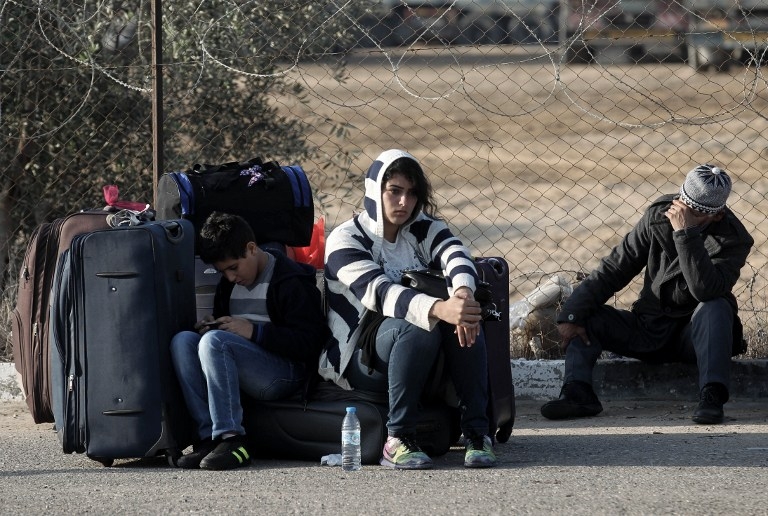
Egypt opened the Rafah border crossing with Gaza for five days on Monday to allow for the passage of stranded people as well as humanitarian cases, officials said.
Observers have highlighted that the opening of Rafah comes amid efforts by Egypt to improve the country's economic situation.
Egyptian President Abd al-Fattah al-Sisi reportedly ordered the passage between Egypt and the blockaded Gaza Strip to be accessible from Monday until Friday.
Hundreds of Gazans gathered at the crossing, which will allow through humanitarian cases, including students studying abroad, patients and visa holders.
The Rafah border is closed most of the year and opens for only a few days every two or three months. Egypt cites problems in the Sinai with armed groups as the reason for keeping it closed.
The Rafah crossing is Gaza's main gate to the outside world: Gaza’s other border crossing, Erez, is with Israel. Only special cases with Israeli-army issued permits are allowed to cross there.
How the crossing helps Egypt
According to Israeli media, the opening of the Rafah border crossing comes amid signs of a thaw between Egypt and Hamas. Tensions peaked when Sisi came to power in a military coup that ousted President Mohamed Morsi, who was backed by the Muslim Brotherhood, in July 2013.
Egypt is reportedly also considering a series of initiatives to improve the economic situation in both Hamas-run Gaza and in the adjacent Sinai peninsula.
Most dramatically, Cairo is reportedly considering establishing a free trade zone in the city of Rafah, which straddles the Sinai-Gaza border, which would allow Gazan traders to purchase goods directly from the Egyptian side of the city.
During the past few years, Egypt has clamped down hard on smuggling tunnels from Gaza – a move that seriously affected many merchants in Sinai. Now, though, Egypt is desperately looking for ways to improve its own economy.
The apparent thaw in relations between Egypt and Hamas has already been felt on the ground, according to trade figures from Gaza, which show a recent increase in Egyptian goods entering Gaza through Rafah, reported the Times of Israel on Monday. Gaza has long relied on Egypt, the most populous Arab state and its only other neighbour besides Israel, for supplies and external access.
In the past year, 64,469 tons of cement, 2,777 cubic meters of wood and 16,800 tons of iron were brought through the Rafah crossing into Gaza - numbers that reflect a steady growth in commerce. A large proportion of those goods eventually found their way to Hamas’s military wing. Some have been used to construct terror tunnels, Israel believes.
Rafah crossing open more often
Despite the crossing usually being closed, the last time Egypt opened the Rafah border crossing was only few days ago. Egypt also recently allowed the Rafah border crossing to remain open longer than usual, and permitted a larger number of Gaza’s residents to use it.
In an unusual move, Egypt opened the crossing on 6 November to allow some 120 Gazans to attend a socio-economic conference near the city of Suez.
Sources in Gaza said this is the second time in the past month that a high-level Palestinian delegation has been allowed to enter Egypt via Rafah.
According to Gisha, the Legal Center for Freedom of Movement, Rafah opened last month on 15-16 October and again from 19-23 October. During those days, 4,544 people left Gaza and 2,117 entered. Altogether, Rafah has been open for only 33 days since the start of the year - so the October openings accounted for almost a quarter of the total so far this year.
Gesture towards Dahlan, pressure on Abbas
Palestinians in both Gaza and the West Bank say that the change in attitude towards the crossing could affect Cairo’s relations with both Abbas and Hamas. Observers have said the changes are primarily an Egyptian gesture toward Mohammad Dahlan, aimed at putting pressure on Abbas, his fierce rival.
Egyptian President Sisi is angry with Abbas because the latter rejected an Egyptian initiative to bring Dahlan back into the fold of Abbas’ Fatah party.
Dahlan, a former high-ranking Fatah official from Gaza who has become a political nemesis to Palestinian Authority President Abbas, is reportedly linked to the negotiations between Cairo and Hamas.
A rapprochement between Hamas and Dahlan seems illogical for many, given the historical rivalry between the two that first emerged during the mid-1990s when Dahlan was head of the Preventive Security Service in Gaza, which Hamas accused of arresting and torturing its leaders.
But Dahlan's dismissal from the Palestinian Authority in 2011, as well as escalating hostilities between Abbas and Dahlan, make the recent rapprochement between Dahlan and Hamas not entirely unexpected, wrote Al Monitor on 30 October.
This article is available in French on Middle East Eye French edition.
New MEE newsletter: Jerusalem Dispatch
Sign up to get the latest insights and analysis on Israel-Palestine, alongside Turkey Unpacked and other MEE newsletters
Middle East Eye delivers independent and unrivalled coverage and analysis of the Middle East, North Africa and beyond. To learn more about republishing this content and the associated fees, please fill out this form. More about MEE can be found here.


